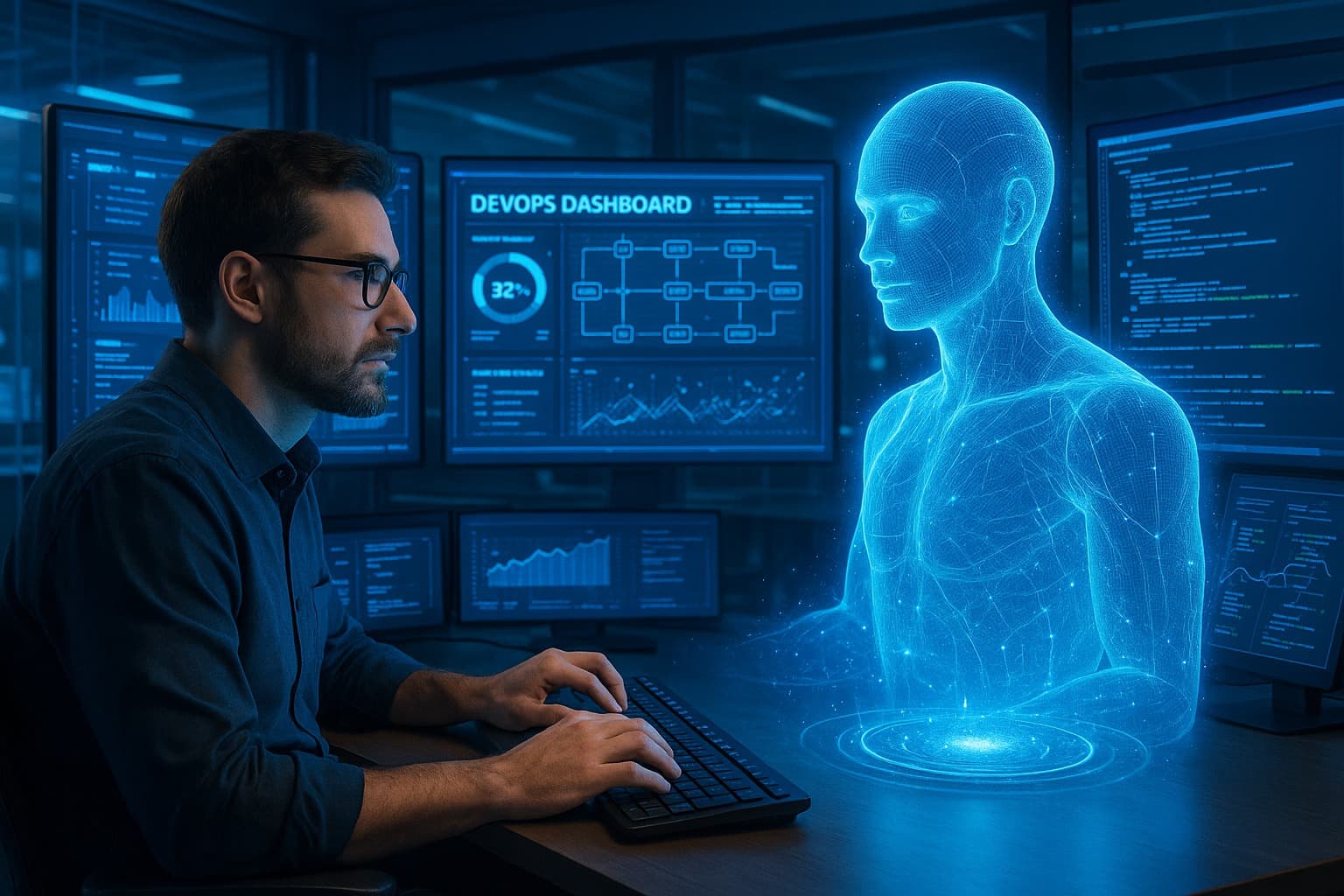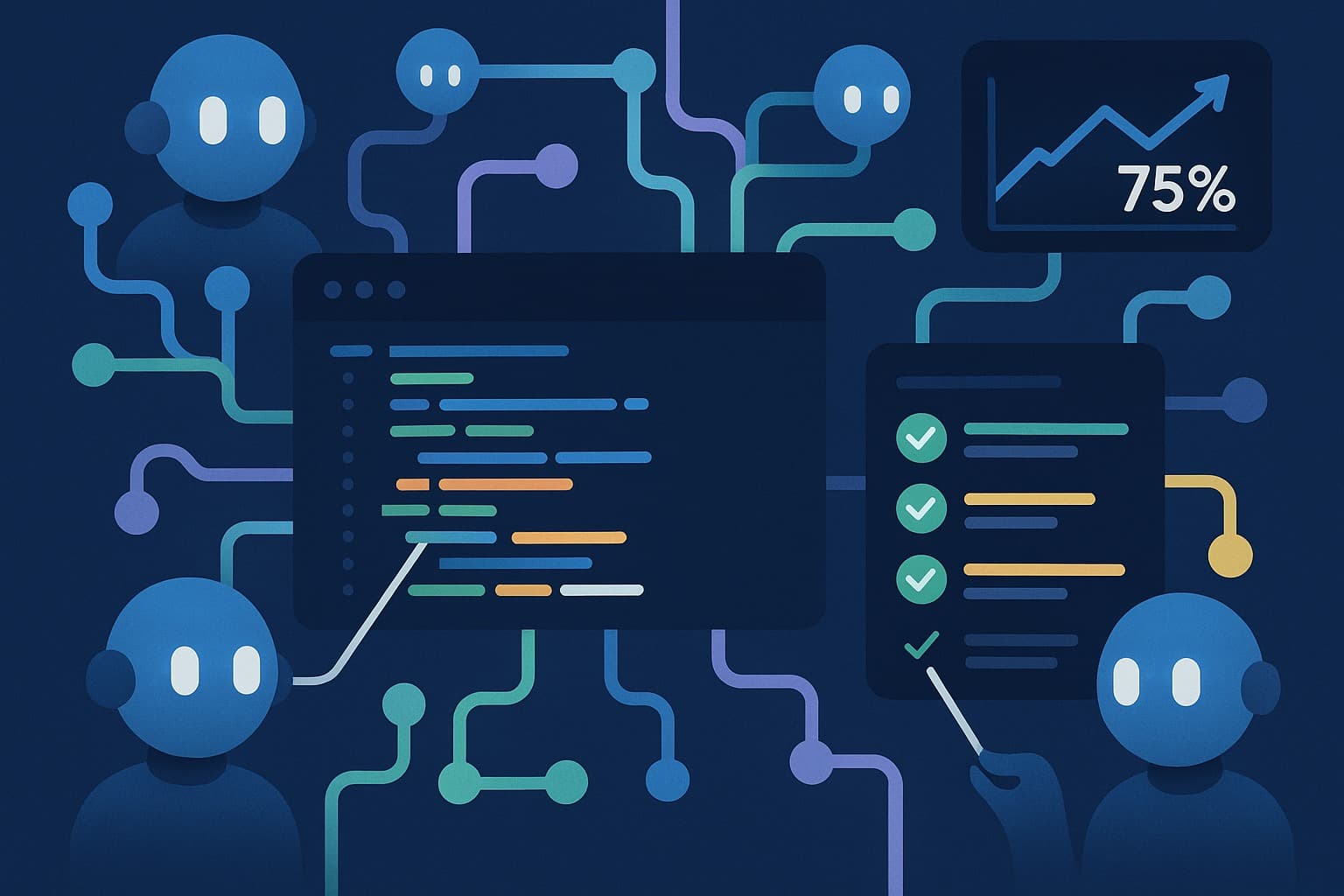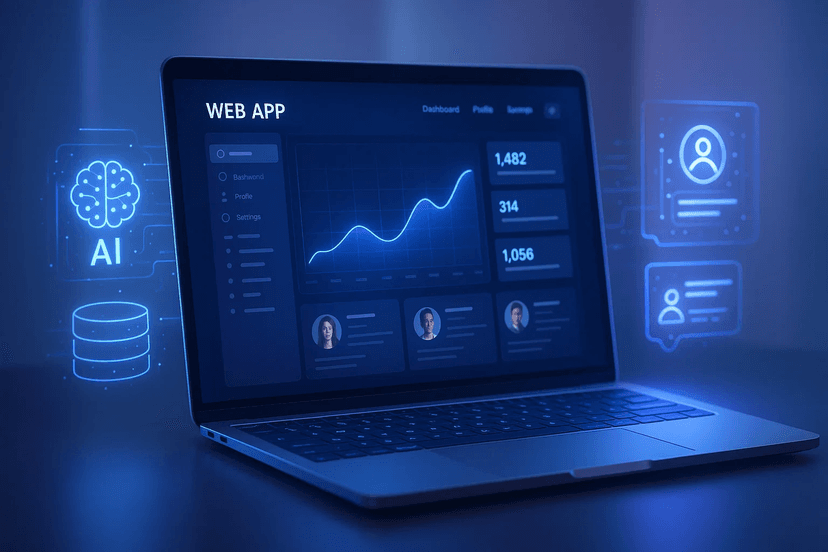Agentic AI Workflows: How Autonomous Assistants Will Reshape Dev & Ops in 2026
Article Summary
- Agentic AI empowers autonomous decision-making with minimal human input.
- 2026 brings infrastructure, GPUs, and LLMs ready for production-grade agentic systems.
- Development sees gains in code review, bug prediction, build optimization, and continuous learning.
- Operations benefit from incident handling, infrastructure tuning, and proactive alerts.
- Human-AI collaboration shifts engineers from executors to strategic overseers.

What Is Agentic AI — and Why It's the Buzzword of 2026
Agentic AI refers to intelligent systems capable of autonomous action, learning, and decision-making with minimal human supervision. Unlike traditional automation that follows rigid rules, agentic systems leverage large language models (LLMs), reinforcement learning, and contextual awareness to adapt dynamically.
In 2026, enterprises are moving beyond chatbots and copilots to deploy agentic AI that can:
• Manage end-to-end workflows • Communicate with other AI agents • Evolve behavior based on feedback • Operate within governance frameworks
This shift transforms how DevOps teams build, test, deploy, and maintain software—replacing repetitive human tasks with intelligent, self-improving agents.

Why 2026 Is the Breakthrough Year for Autonomous DevOps
Several factors converge in 2026 to make agentic AI viable for production DevOps:
1. Model Maturity: GPT-5, Claude Opus 4, and Gemini Ultra 2.0 now handle multi-step reasoning reliably. 2. Tool Ecosystems: Frameworks like LangChain, AutoGPT, and Crew AI enable easy agent orchestration. 3. Infrastructure Readiness: Cloud platforms offer agent-native APIs, sandboxes, and token-optimized compute. 4. Developer Adoption: Engineers trust AI enough to delegate critical operations—especially after 2024–2025's copilot success. 5. Economic Pressure: Rising cloud costs and talent shortages drive demand for autonomous efficiency.
Together, these make 2026 the inflection point where agentic AI transitions from research novelty to DevOps necessity.

How Agentic AI Transforms Development
Agentic AI doesn't just assist developers—it acts as a proactive teammate across the software development lifecycle.
1. Autonomous Code Review AI agents analyze pull requests, flag security vulnerabilities, suggest performance improvements, and even auto-commit fixes for minor issues. They learn project conventions over time, making feedback increasingly relevant.
Example: An agent spots inefficient database queries in a PR, rewrites them for optimization, runs benchmarks, and updates the commit—all before a human reviewer sees it.
2. Predictive Bug Detection By correlating code changes, user behavior analytics, and past incident logs, agentic AI predicts where bugs will emerge. It alerts developers preemptively or generates patches.
Example: After detecting a spike in API timeout patterns, an agent traces the root cause to a recent config change, reverts it, and notifies the team—before users file tickets.
3. Smart Build Optimization Agents monitor CI/CD pipelines, identify bottlenecks (slow tests, redundant builds), and reconfigure workflows for speed. They parallelize tasks, cache intelligently, and prune unnecessary steps.
Example: An agent notices that 40% of integration tests run on every commit despite low failure rates. It shifts them to nightly builds, cutting CI time by 30%.
4. Continuous Learning Loops Unlike static tools, agentic AI evolves. It ingests retrospectives, monitors production metrics, and refines its recommendations based on what works.
Example: After a deployment failure caused by a missed dependency, the agent updates its pre-deployment checklist and flags similar risks in future releases.
How Agentic AI Reshapes Operations
Operations teams face constant firefighting—outages, scaling issues, security alerts. Agentic AI shifts this from reactive to proactive.
Key operational capabilities:
• Incident Response: Agents diagnose issues, execute runbooks, roll back deployments, and escalate only when necessary. • Infrastructure Tuning: AI monitors resource usage, right-sizes instances, and adjusts autoscaling policies in real time. • Security & Compliance: Agents scan for vulnerabilities, enforce policy violations, and auto-remediate misconfigurations. • Proactive Alerting: Instead of flooding teams with alerts, agents filter noise, predict failures, and recommend preventive actions.
Example: A Kubernetes cluster experiences memory pressure. An agentic system detects it, identifies a memory leak in a microservice, scales horizontally as a stopgap, files a bug with diagnostic logs, and notifies the on-call engineer—all within minutes.
The Role of Agentic AI in Automated Testing
Testing is one of the most labor-intensive parts of DevOps—and one of the first to benefit from agentic AI.
1. Dynamic Test Generation Agents analyze code changes and automatically generate unit, integration, and end-to-end tests. They understand edge cases humans miss.
2. Self-Updating Test Suites As applications evolve, tests become stale. Agentic AI detects deprecated tests, refactors them to match new code, and removes redundant coverage.
3. Root Cause Analysis When tests fail, agents don't just report the error—they investigate. They bisect commits, analyze logs, and pinpoint the exact change responsible.
4. Multi-Agent Collaboration In complex systems, multiple agents coordinate: one handles UI testing, another API contracts, a third performance benchmarks.
Partner with our software testing services to integrate AI-powered testing into your DevOps workflow.

The Human + AI Collaboration Model
Agentic AI doesn't replace engineers—it elevates them. The role of DevOps professionals shifts:
From: Writing boilerplate code, triaging alerts, manual testing To: Designing system architecture, training agents, strategic decision-making
Engineers become orchestrators: They define goals, set guardrails, and review agent actions. The AI handles execution.
Key principles for effective collaboration:
• Transparency: Agents explain their reasoning (e.g., "I rolled back because error rate exceeded 5% threshold"). • Auditability: All agent actions are logged for compliance and retrospectives. • Human Override: Engineers can pause, correct, or veto agent decisions. • Continuous Feedback: Teams rate agent performance, improving future behavior.
This partnership maximizes efficiency while preserving human judgment for ambiguous or high-stakes scenarios.
Benefits of Adopting Agentic AI in Dev & Ops
• Faster Delivery: Automated testing, builds, and deployments shrink release cycles from weeks to days. • Reduced Costs: Right-sizing infrastructure and eliminating manual toil cut cloud spend by 20–40%. • Higher Quality: Proactive bug detection and continuous optimization reduce production incidents. • Scalability: Agents handle growing complexity without proportional headcount increases. • Developer Satisfaction: Engineers escape grunt work and focus on creative problem-solving. • 24/7 Operations: Agents don't sleep—they monitor, respond, and optimize around the clock.
Real-World Use Cases in 2026
1. E-Commerce Platform: An agentic system manages Black Friday traffic surges—scaling infrastructure, load-balancing requests, and auto-fixing payment gateway timeouts without human intervention.
2. SaaS Startup: A small team deploys agents to handle 90% of customer bug reports—reproducing issues, suggesting fixes, and updating documentation autonomously.
3. Financial Services: Compliance agents scan every code commit for regulatory violations, auto-reject non-compliant changes, and generate audit trails.
4. Gaming Studio: AI agents optimize game server performance in real time, predict player churn from behavior data, and deploy hotfixes for exploits within minutes.
How to Prepare for Agentic AI Integration
Organizations ready to adopt agentic AI should:
1. Start Small: Pilot agents in low-risk areas before production deployments. 2. Invest in Observability: Robust monitoring is essential for training and trusting agents. 3. Define Guardrails: Set clear boundaries for agent actions. 4. Upskill Teams: Train engineers on agent frameworks and AI collaboration. 5. Choose the Right Tools: Evaluate platforms or build custom solutions. 6. Iterate: Treat agents as team members—give feedback and refine behavior.
Partner with our AI software development services to build intelligent agentic systems for your DevOps workflow.
Conclusion: The Future Is Agentic
Agentic AI isn't a distant vision—it's reshaping DevOps in 2026. Autonomous assistants handle repetitive tasks, predict problems, and optimize systems at a scale humans can't match.
Ready to future-proof your DevOps? Partner with our AI ML software development services to build intelligent automation systems.
Tags
Frequently Asked Questions
What makes Agentic AI different from traditional automation?
Can Agentic AI replace DevOps engineers?
Is Agentic AI safe for production environments?
What industries will benefit most?
Does Agentic AI require retraining existing teams?
About Slincom Development Team
Expert developers specializing in AI/ML, DevOps automation, and intelligent software development.
Related Articles

AI-Enhanced Product Discovery: 2025's Must-Have Kickoff for Web Apps
In 2025, AI-driven product discovery defines how users interact with web apps.

Why React + Tailwind Is the Secret Sauce Powering Modern Startups in 2025
In 2025, startups need speed, scalability, and sleek design to succeed.

Python FastAPI vs Node.js Express: Who Wins the 2025 Backend Face-Off?
In 2025, FastAPI and Express.js are two of the most popular backend frameworks.

Node.js or Python in 2025: Which Backend Is Winning the Dev Race?
In 2025, developers are choosing between Node.js and Python for backend development.